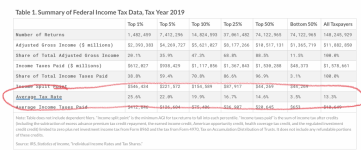...continued from above:
Taxation as 'redistribution' vs. distribution of wealth: It's a fundamental error in perception to think that taxation is taking stuff that naturally or rightfully 'belongs' to someone. With some possible caveats in terms of the above 'state of nature' and 'sweat of your brow' concepts,
distribution of income and wealth is broadly determined by governments and societies to begin with; through the choice of economic system upheld in the laws, through historic open discrimination and ongoing discrimination of opportunity, through infrastructure, planning, contracting, policing and regulation. There is no natural distribution of wealth since none of this would exist at all without our agreements as societies (albeit historically often under duress if not open tyranny) to respect certain property 'rights' and interact with each other in certain ways. Taxation is just one of the later, fine-tuning stages of that overall process of societies' determination of who should have what. As such, the question "How much should the rich be taxed?" is essentially equivalent to, no less valid and certainly no more valid than the question "
How much should the rich be allowed to keep?" What does that imply, if we're basing our ideas on fairness and treating everyone equally?
Productive vs. destructive wealth: This is probably the most important but least acknowledged issue, the fact that extreme concentration of wealth is fundamentally destructive: It's destructive to democratic society, through the disproportionate influence on politicians directly and public opinion indirectly. It's destructive to the environment and the earth- and eco-systems on which human civilization depends for its continuation, through disproportionate consumption of rare resources and polluting tendencies such as private planes and yachts. It's even destructive to the wealthy person's own psychological wellbeing, undermining their basic human empathy and sense of perspective by disconnecting and creating the illusion of elevation above the trials which most others go through. While the preceding points all make a sound philosophical case for progressive taxation, this last point highlights the need for far, far more progressive taxation if not a
hard cap on total wealth based on intensely practical concerns - ultimately, potentially, the very survival of human civilization itself.
For the sake of life on Earth, we should set an upper limit on the money any person can amass. By George Monbiot, published in the Guardian, 19th September 2019 It is not quite true that behind every great fortune lies a great crime. Musicians and novelists, for example, can become extremely...
www.monbiot.com





